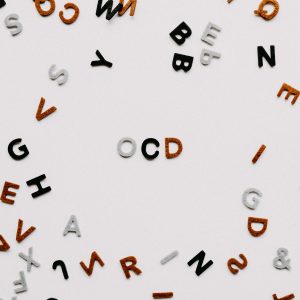Hypochondria is a complicated mental condition that can sometimes be mistaken as generalized anxiety or depression. Some people who worry about their health may actually have an illness or a series of illnesses. So, how is it possible to differentiate between somebody who is a hypochondriac and somebody who has any one of these other conditions?Well, luckily, there are several key hypochondriac tendencies that make it obvious that a person is struggling with hypochondria versus some other mental or physical condition.
Here are 7 key hypochondriac tendencies you need to be aware of:
Frequent worry about minor health issues
It is very common for hypochondriacs to worry, frequently, about minor health issues. Many hypochondriacs believe that minor health issues, such as a cough, can be indicative of a more serious condition. There are many, many health issues that are minor and short-lasting. For example: stomachaches, headaches, coughs, sore throats, sinus congestion, aches and pains, or fevers. These minor health issues may be very triggering for hypochondriacs as they tend to think the worst of situations. Even when a hypochondriac is reassured by a doctor that they are healthy, they still may believe they are sick.
A tendency to interpret ambiguous symptoms as indications of serious health problems
There are a number of reasons why hypochondriacs have a tendency to interpret ambiguous symptoms as indications of serious health problems. For one, hypochondriacs tend to be very anxious about their health. Because of this, they are always on the lookout for any potential signs or symptoms of illness. This means that they are more likely to notice and pay attention to any changes in their bodies, even if those changes are relatively minor or could be interpreted in multiple ways.
In addition, hypochondriacs often have a very negative view of their health. Because of this, they are more likely to assume that any new symptom is a sign of a serious problem. This can lead them to interpret even relatively innocuous symptoms as indicating a major health issue. Finally, hypochondriacs may also be more likely to seek out medical advice and opinion. This can reinforce their beliefs that their symptoms are indicative of a serious problem. If a doctor or other medical professional confirms their suspicions, it can further cement their belief that they are ill, even if the condition is relatively minor.
Excessive reassurance seeking
Hypochondriacs often seek reassurance from others, including their doctor, that they are not sick. They may also use the Internet to research their symptoms and look for information that reinforces their beliefs. There are several possible explanations for why hypochondriacs seek reassurance. One possibility is that they are trying to reduce their anxiety about their overall state of health.
By getting reassurance from others, hypochondriacs hope to reduce their fear and worry. Another possibility is that they are looking for confirmation of their beliefs. They may believe that their symptoms are real and serious. They want others to tell them that they are not imagining things. It is also possible that hypochondriacs seek reassurance because they are seeking attention. They may feel that their health concerns are not being taken seriously by others and that they need to seek reassurance in order to be heard. Whatever the reason, hypochondriacs tend to seek reassurance more frequently than people without health anxiety.
Believing that they are cursed or have bad luck
There are a number of reasons why hypochondriacs may believe they are cursed. For one, they may feel that they are constantly sick or in pain, and that no one else seems to understand what they are going through. They may also feel like they are constantly being tested by fate, and that no matter what they do, they always seem to come up short. Additionally, hypochondriacs may feel like they have no control over their own health. They believe they are at the mercy of whatever illnesses or injuries may come their way. Because hypochondriacs so frequently believe that they are ill, they may believe that they have extremely bad luck when it comes to their health.
Excessive cleaning
Hypochondriacs often clean excessively in order to avoid germs and bacteria. Many hypochondriacs are afraid of germs or bacteria for fear that they will contract a serious illness. This is different to people with obsessive-compulsive disorder, who want to avoid germs and bacteria because they don’t want to feel “dirty” or “contaminated.” Many hypochondriacs will also try to stay away from surfaces or situations that they deem as unclean out of the fear that they will contract a serious illness from bacteria.
Believing that their health is the only thing that matters
Hypochondriacs have a tendency to believe that their health is the only thing that matters. Because they are so preoccupied with bodily sensations, symptoms, and other health-related worries, they often forego other important aspects in their life. It is extremely important to be healthy but there are often other factors in a person’s life that need care, such as: school, work, family, friends, hobbies, exercise, and/or romantic relationships. The more that somebody focuses on their health instead of evenly balancing their health concerns amongst their other priorities, the more likely they are to be a hypochondriac.
These are some common hypochondriac tendencies, though they are certainly not the exhaustive list of all hypochondriac tendencies.
Disclaimer: THIS WEBSITE DOES NOT PROVIDE MEDICAL ADVICE.
If you are currently experiencing medical concerns, it’s important to talk to a doctor to rule out any underlying medical conditions. HypochondriacHQ does not substitute professional medical advice or consultations with healthcare professionals. Never disregard professional medical advice or delay in seeking it because of something you have read or seen on this website.




